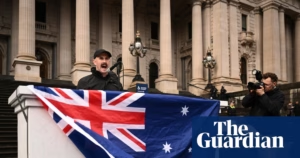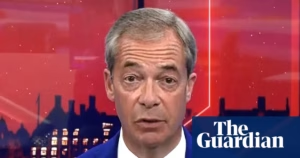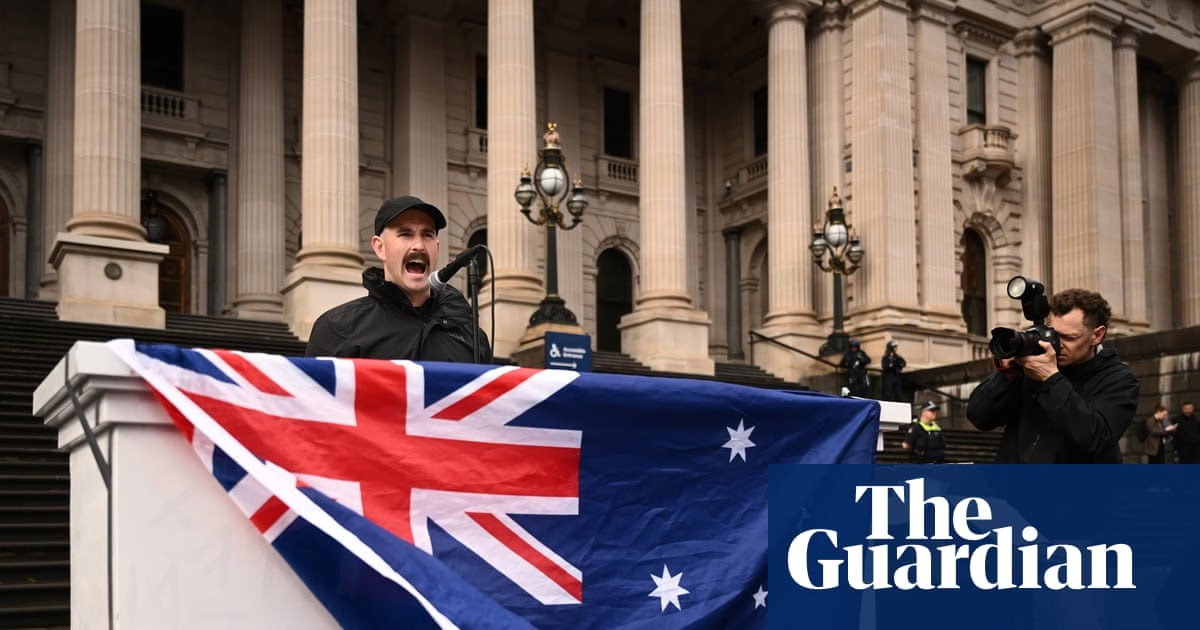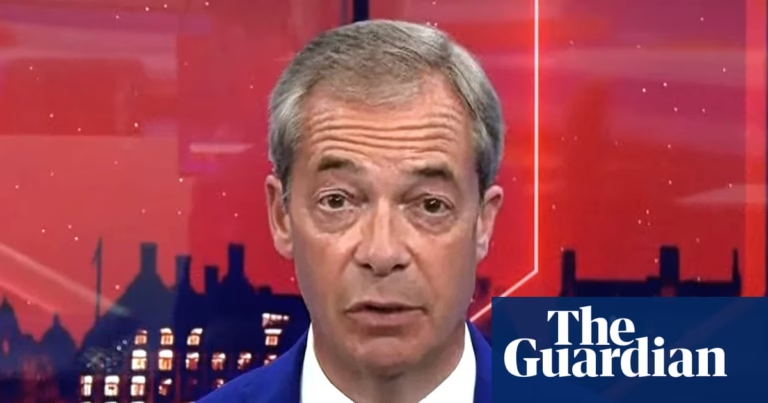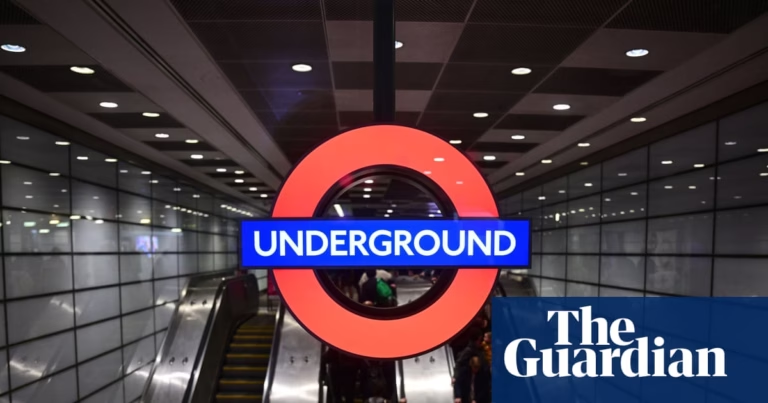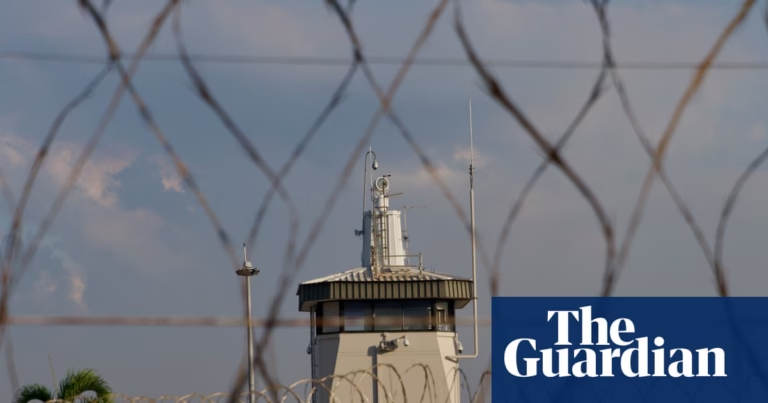<
div>
As neo-Nazis once again occupied the steps of Victoria’s parliament within a span of two years, many are questioning why this incident has recurred and what measures can be taken to prevent it.
On Sunday, neo-Nazi Thomas Sewell, who leads the National Socialist Network (NSN), stood on the parliament steps, flanked by an Australian flag, and delivered a speech at the city’s March for Australia rally. Neo-Nazis also participated in rallies in other states, although statements on the March for Australia Facebook page distanced the rallies from white supremacists.
Sign up: AU Breaking News email
It is likely that some attendees at Sunday’s rally were unaware of Sewell’s identity or his role in previous neo-Nazi stunts in Victoria. In 2023, he led a group that performed a Nazi salute on the parliament steps, which prompted the Victorian government to ban the gesture.
However, this awareness may have changed by Tuesday, when video footage of Sewell confronting Victorian Premier Jacinta Allan at a press conference in West Melbourne Park began to circulate.
Publicity is what groups like Sewell’s crave, and he unfortunately obtained a significant amount due to the intervention. However, it is challenging to overlook the ramifications of his unfounded claim that Allan was attempting to “ban protest” in the state.
In reality, Allan and her government have consistently resisted efforts by the opposition to introduce stricter “move-on” laws or require permits for protests. Opposition leader Brad Battin reiterated these calls after the weekend’s events.
“Why do these groups keep getting away with this in our state?” Battin questioned on ABC Radio Melbourne.
“How can we continue to have a situation where neo-Nazis show up to events and protests and voice their opinions at every opportunity? Why haven’t we taken action on this in the past?”
Battin noted that such permits have been required in New South Wales for over 30 years, which he asserted have been “very successful” in reducing violence and managing protest routes.
However, critics argue that permit systems give excessive power to law enforcement and the courts.
Even Victoria’s new police chief, Mike Bush, has opposed a permit system for protests, stating in multiple interviews that such systems have not been effective in other states.
Permits do not prevent unauthorised protests, and it is worth noting that neo-Nazis also attended Sydney’s March for Australia rally on Sunday, despite existing permit requirements.
One Labor MP commented, “Do you seriously see Thomas Sewell applying for a permit?”
Calls for stricter “move-on” laws also ignore the fact that police in Victoria already have extensive powers. Officers can arrest or detain protesters if they reasonably believe a criminal offense is being committed.
On Sunday, these powers were utilised—six people were moved on and 12 were arrested. Nevertheless, some within Labor have privately questioned why these powers weren’t more forcefully implemented.
Senator Lidia Thorpe publicly questioned why police did not follow the neo-Nazis to Camp Sovereignty.
“Why did the police not use their existing powers and stop them? It would have prevented the violence,” Thorpe stated.
Allan has emphasised the government’s anti-vilification laws, which are set to take effect on 20 September. These laws create two new criminal offences for severe vilification, carrying penalties of up to five years’ imprisonment.
However, the rise of neo-Nazis will not be resolved solely through legislation. Radicalisation typically occurs over extended periods, often before any crime is committed.
Two inquiries currently gather dust, providing the government with paths forward.
The first, a 2021 inquiry into anti-vilification, led to the state’s new laws and included recommendations for expanding educational programs focused on promoting respect, diversity, and cohesion, as well as community education campaigns on vilification and hate conduct.
A 2022 inquiry into far-right extremism suggested increasing resources for specialised youth programs to prevent radicalisation, additional funding for online literacy programs to help young people resist far-right propaganda, and counter recruitment strategies.
Both inquiries highlight a clear message: long-term, resource-intensive efforts are needed to prevent radicalisation at its core.
It’s something Allan herself acknowledged, which might have received more attention had it not been for Sewell’s interruption.
“This issue goes beyond just law and order. There is something deeper happening here. People’s sense of economic security is being exploited by a small number of individuals who want to use societal cracks to drive division,” she said.
“The path to social cohesion lies in building a stronger society—a place where people have jobs, rights, and are respected.”
This type of work is slow and requires commitment across multiple election cycles. But it’s the work that truly needs to be done.
